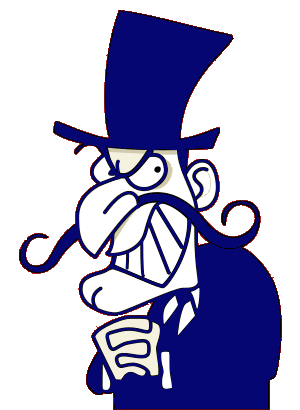Writers. Friends. We sometimes like having villains in our stories,
yes? Or antagonists who are driving forces that propel our plot, stand in the
way of our protagonists, and more often than not we wish them to be evil and
villainous to justify the actions of our main characters. Yes?
Which begs to question... what’s up with villain names?
No, really. What kind of mother gives birth to her child and
says, “Yes, my darling baby will henceforth be named Darko Beelzebub and golly
he will grow up to achieve great things!”
Although I find this to be a more common theme with high fantasy
novels, something which is a little out of my element. But every now and then I will pick one up and go, “Well, what did they expect?” Like who names their son Galbatorix (Eragon)
or Darken-freaking-Rahl (Wizard’s First
Rule) and not expect that they’re
going to turn out to be nasty people? I’ll at least try to give Lord Voldemort
some credit, as maybe he found that the name Tom Riddle wouldn’t exactly strike
fear into the hearts of the wizarding community. But still. Can I just say that Tom Riddle is actually a pretty cool name?
It genuinely makes me curious as to what creative process goes through writer’s heads when coming up with names for their antagonists (assuming they have one at all). For me and the horror genre in general, most of the time an antagonist’s name can be anybody’s, and that’s what I love about it. It’s perfectly realistic to imagine a parent naming their child Joe or Sally and not expect them to grow up to become a bloodthirsty psychopath. It’s not like they’re damning them to a life of socipathy. And when they are given really evil names, it’s usually given to them by either themselves or people who decided to call them Belphegor the Butcher.
For me, as far as the Seraphim books are concerned, I like to think that names such as “Gregory” and “Rhea” and “Jonah” are more liable to initially inspire trust and confidence than fear — and that’s how I think a good opposite force should be. Someone who you can think and trust to do good, but have more selfish ulterior motives in mind. Not some moustache-twirling man wearing spikes and a dark cloak, sitting behind his desk, petting his lapdog while trying to assure you that his name is Dark Lord Astaroth of the Shadow Realm, and he is absolutely not a villain.
...



No comments:
Post a Comment